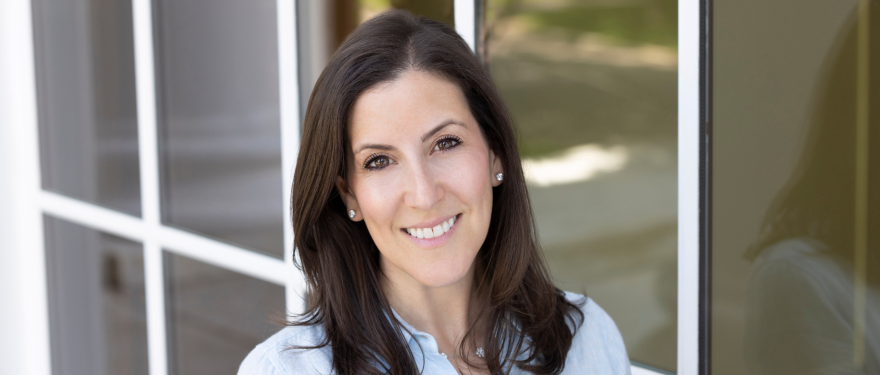Hillary Mann is a Corporate Relations Director in the Career and Professional Development Office covering Consumer Products, Retail & Luxury Goods, Hospitality, Agribusiness, and Sustainability. She enjoys helping students and alumni realize and achieve their career aspirations.
Tell us about what you were doing before joining HBS and what inspired you to join the Career & Professional Development (CPD) team.
Before coming to HBS, I lived in New York City where I worked in integrated marketing for VH1. During my time at VH1, I developed a passion for understanding consumer desires and marketing to them. I had the opportunity to work with brands on exclusive show sponsorships, large tentpole events and the VH1 Save the Music Foundation to restore public school music programs. When my husband and I moved to Boston, I knew that I wanted to stay in marketing, but I was also seeking a position within the nonprofit space and specifically for an organization that had mission and purpose in their DNA.
I was fortunate to find a position in the marketing department for HBS’s Career Professional Development team. I spent more than a decade on the team in various management roles. Four years ago, I got involved with coaching and career education programs. This led me to working with students interested in industries such as consumer products, retail, sustainability, agribusiness, and hospitality. Living sustainably and minimizing my carbon foot print is something I am passionate about, whether it’s by eating a primarily plant-based diet or using clean products in my home. I am interested in the psychology of what will drive consumer decisions to make thoughtful choices so that we can have more sustainable planet. These interests propel me to support students looking to pursue opportunities in this critical space.
What have you noticed about the types of jobs that students pursue and the types of positions that recruiters are looking for in the sustainability field?
I've noticed an increase in pursuit of sustainability careers among our students. Recent graduates care deeply about the environment; they see the opportunities and the challenges that the world faces and they want to be instrumental in making a positive impact. The students that I work with are interested in a wide range of industries, organizations, and positions. Some are interested in businesses where sustainability is at the core; others are interested in an organization where sustainability might be a newer initiative.
A common question from MBAs is how to decide what type of company to pursue- whether an early stage start up, a medium size company, or a large corporation. What advice do you have for students grappling with this choice?
My first piece of advice is to work with a CPD career coach to gain clarity on your career and life criteria. What are the tasks that you want to be doing on a day-to-day basis that will bring you satisfaction in your job? What problems do you want to help solve? What type of company culture will enable you to thrive? These questions might help inform the type of organization you might be interested in. You can see more of the resources available to you here.
It's important to understand that the first organization you go to after school is likely not going to be your last, your career can take many twists and turns in terms of what type of company you're at and what type of role you sit in. Many of our students come to HBS with a career change on their mind and many of our organizations are open to career switchers.
Careers in climate and sustainability are relatively new and, therefore, the path to breaking into the field can be less straightforward compared to other fields. What advice do you have for students whose background may not be directly related or those who came to HBS looking for a career change?
Start by understanding the different opportunities and challenges that exist. Connect with Baker Library, talk to faculty, network with alumni. Baker Library can provide you with access to databases that provide industry trends on specific challenges within sustainability and environment. They also can be helpful in developing a target list of companies once you’ve narrowed down what area of sustainability you're passionate about. You can get as broad or as narrow as you want, it's a great way to form a target list of companies.
If you find that you have a large target list, I encourage students to review their career and life criteria. Often you might not know from looking at a company’s statistics whether that's going to be the right place for you, so you need to meet and talk to employees. As you narrow down your target list, I recommend looking for alumni, either from HBS or an undergraduate institution, to connect with.
Are there any other common questions that you get from students or last pieces of advice?
If a student is new to this space, I often suggest they talk to ECs and faculty. It's a safe environment to learn the language and the opportunities and challenges before reaching out to alumni and organizations. Often students struggle with networking and what that looks like and I encourage students to learn about the person or company to demonstrate interest in what they are doing. Be specific about something that interests you or something new or noteworthy that they are doing. My last word of advice may be more obvious, but I encourage students to join clubs like Sustainability, Energy and Environment, and Food and Agriculture.
This article was first featured on the HBS Business & Environment Initiative's blog.

